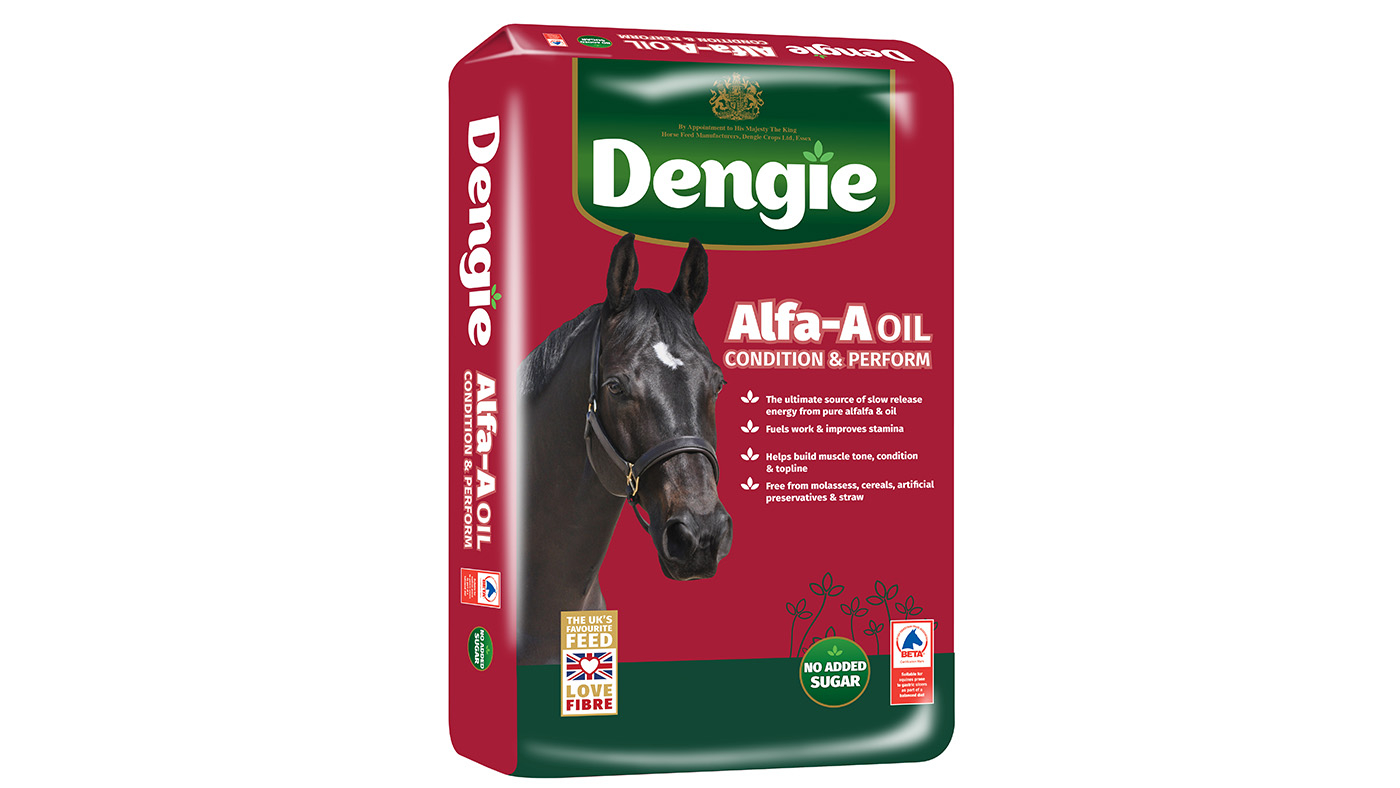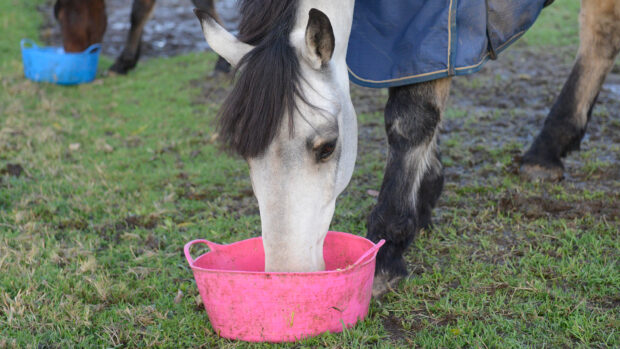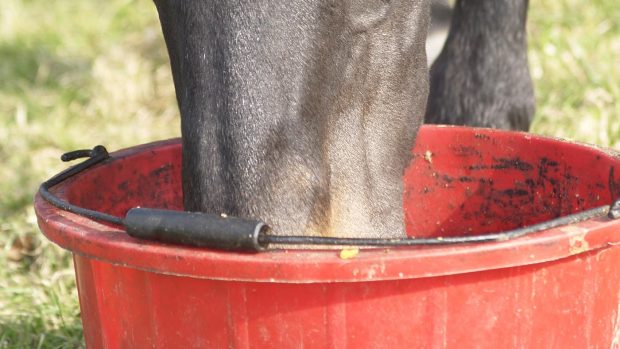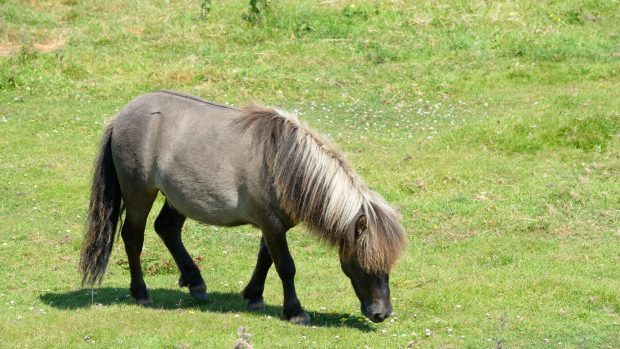If you’ve got a horse prone to gastric ulcers, choosing the best feed for them is really important as feeding a horse with gastric ulcers in the right way is key for their health and comfort. A horse with diagnosed or suspected gastric ulcers should receive a high-fibre, high-forage diet that contains little or no whole cereal grains.
We’ve rounded up a selection of feeds that have the BETA EGUS approval mark, but have also included a selection of feeds that are low in sugar and starch, and include other ingredients that support the digestive system. These feeds are all deemed suitable for horses prone to gastric ulcers or horses requiring low-starch diets. If your horse doesn’t need additional feed for energy or condition, you may want to consider a supplement for gastric ulcers, which is formulated to help balance the pH, instead.
Best feeds for horses and ponies prone to gastric ulcers
Balancers suitable for horses with or prone to ulcers
NB: Cost per day has been calculated using the maintenance measure for a 500kg horse in light work (where there was variation, unless stated) and the RRP. These costs per day are a guide only.
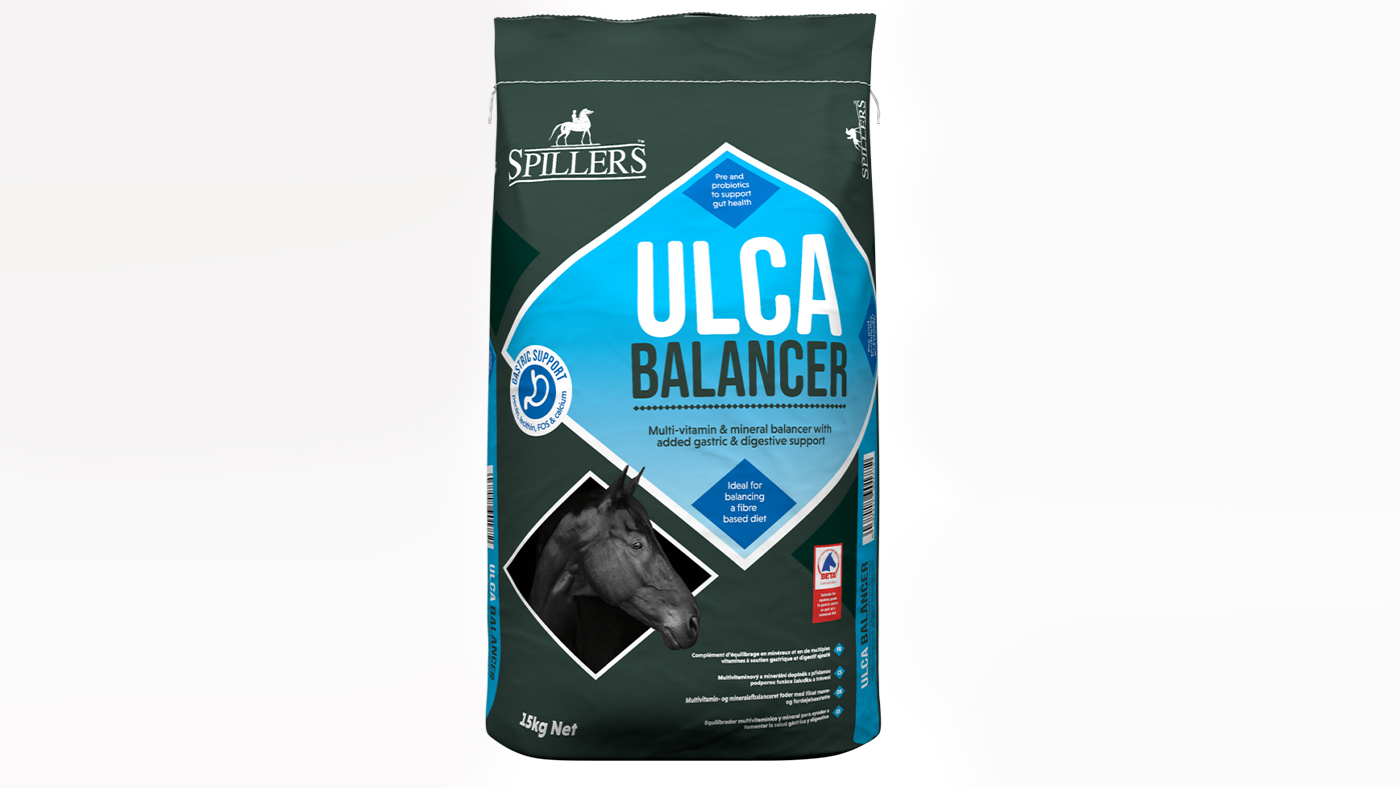
Spillers Ulca Balancer
Bag weight: 15kg
RRP: £36.18
Daily feeding rate: 500g
Cost per day: £1.21
BETA Approved: Yes
This multi-vitamin and mineral balancer has added pre- and probiotics to support gut health, plus pectin, lecithin, FOS and calcium for gastric support. It is a great option for balancing a fibre-based diet if your horse is a good-doer and doesn’t need a compound feed.

Baileys No.19 Performance Balancer
Bag weight: 20kg
RRP: £37
Daily feeding rate: 500g
Cost per day: £0.93
BETA Approved: Yes
This low-starch (6%), low-sugar (6.5%) formulation is also low in energy, making it ideal for good-doers that don’t need the elevated calories. It includes a superior amino acid profile to help build muscle and topline, without the need for additional supplements, and contains elevated antioxidant and biotin levels to meet the highest demands.
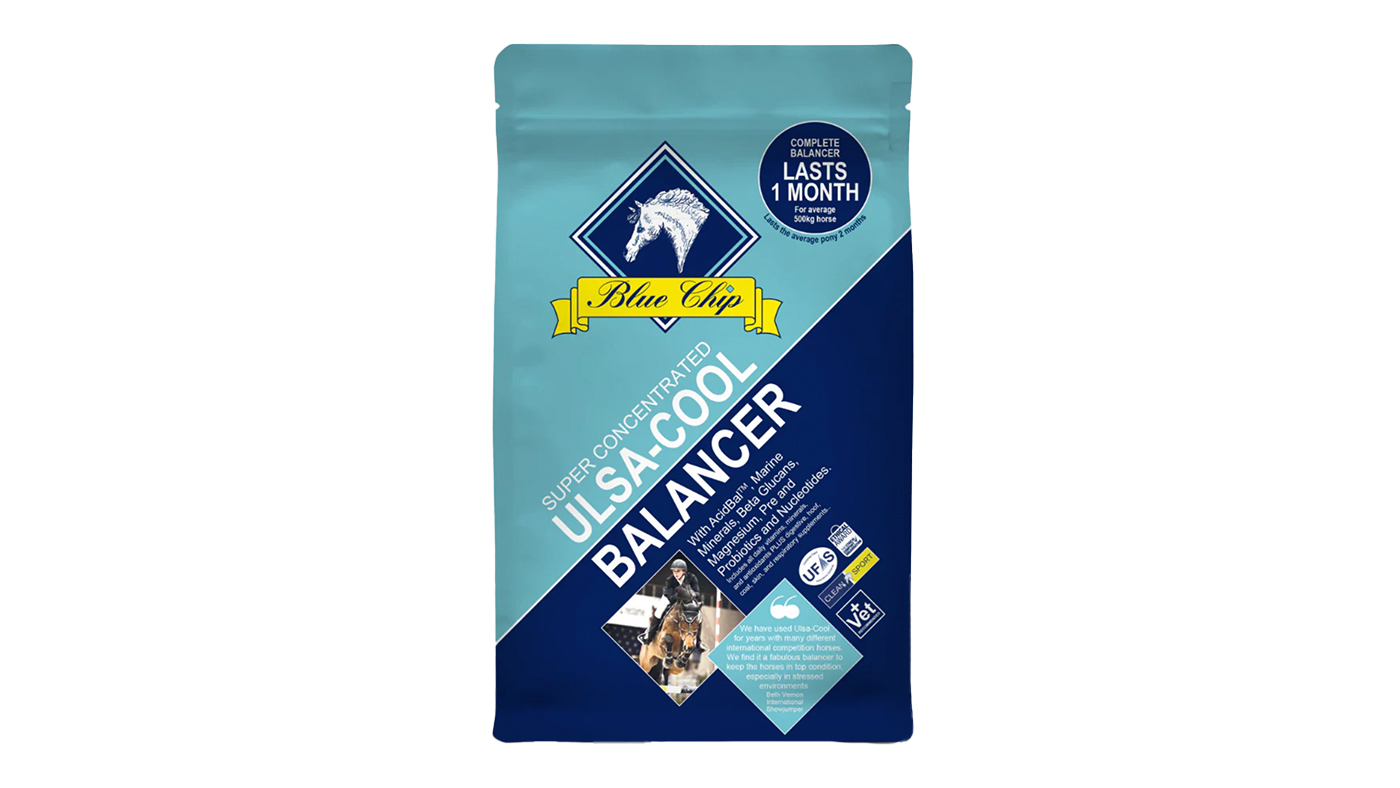
Blue Chip Ulsa-Cool Feed Balancer
Bag weight: 3kg
RRP: £30.80
Daily feeding rate: 100g
Cost per day: £1.03
BETA Approved: No
Specifically formulated for those prone to ulcers, this pelleted balancer helps protect the stomach lining from acid, encourages a healthy functioning digestive system and keeps feed moving slowly through the gut to aid nutrient absorption. It contains prebiotics, probiotics, beta glucans, marine minerals, nucleotides and antioxidants to help with the natural balance of the gut microflora. Whole grain and molasses free.
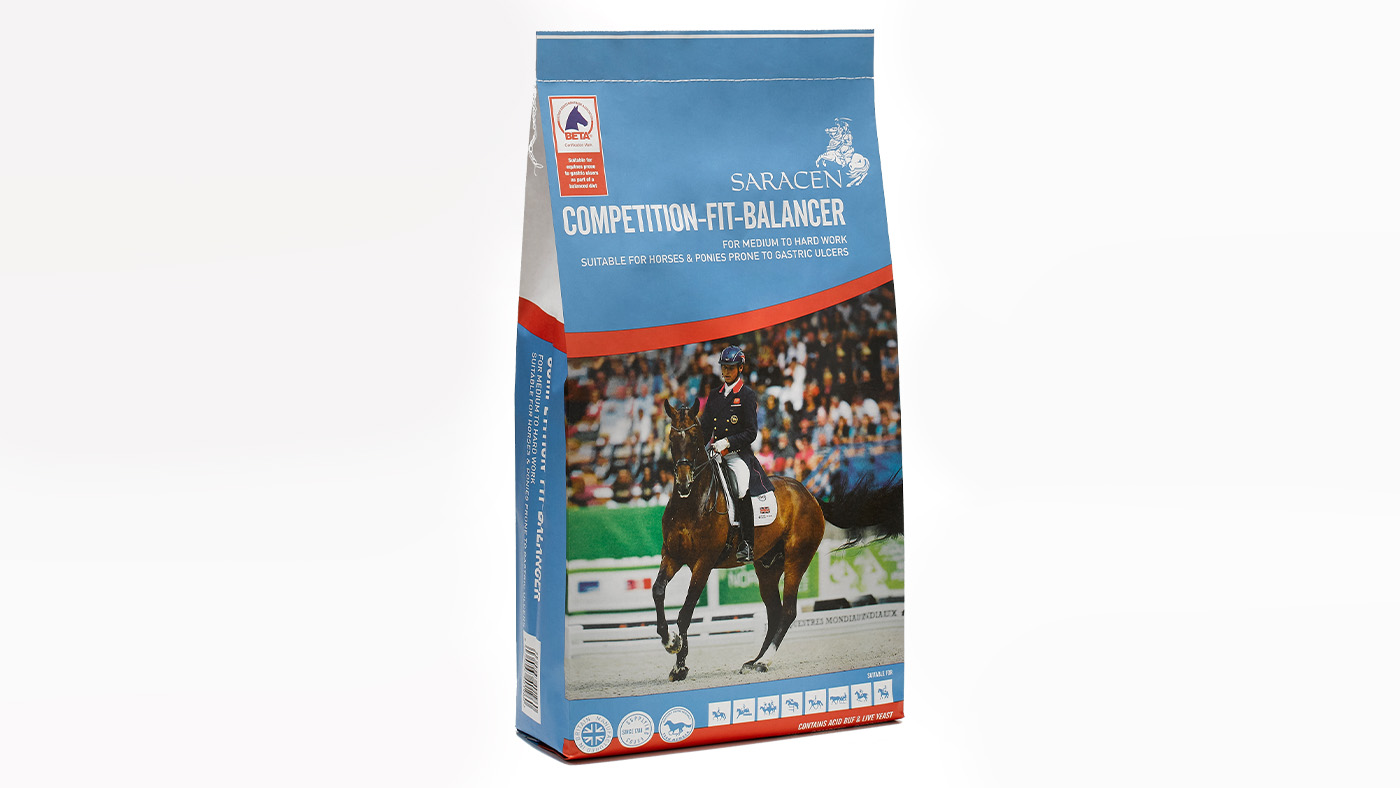
Saracen Competition-Fit Balancer
Bag weight: 20kg
RRP: £35.49
Daily feeding rate: 500g
Cost per day: £0.89
BETA Approved: Yes
This balancer comes in the unique form of a mix, providing a higher level of fibre and oil to support stamina, while the inclusion of micronised maize helps to increase the energy level. The blend of energy sources helps to control energy release, and so maintain a calm and trainable temperament. It contains live yeast, which supports digestibility and helps to maintain a stable gut flora in times of stress, as well as an acid buffer to support digestive function.

Baileys No.14 Lo-Cal Balancer
Bag weight: 20kg
RRP: £35
Daily feeding rate: 500g
Cost per day: £0.88
BETA Approved: Yes
This balancer is designed to be fed alongside a light chaff to maximise chew time but minimise calories by supplying essential nutrients that are often lacking from soaked forage, poor/restricted grazing and low-calorie chaffs. It contains quality protein, to provide the building blocks for muscle, skin and hoof and help maintain topline, plus targeted gut support. It contains vitamins and minerals in proportions formulated in the same way as a broad-spectrum supplement.
Chopped fibre feeds suitable for horses with or prone to ulcers
Dengie Alfa-A Oil
Bag weight: 20kg
RRP: £21.19
Daily feeding rate: 1.5kg
Cost per day: £1.59
BETA Approved: Yes
This high-calorie, fibre feed is ideal for promoting condition, coat shine and fuelling work. It’s a natural blend of pure alfalfa, which buffers acidity in the digestive tract, and rapeseed oil, which provides a comparable amount of energy to a conditioning mix/cube, with really low levels of starch (2%) and naturally occurring sugar at (4.5%). It is free from straw, molasses and preservatives.
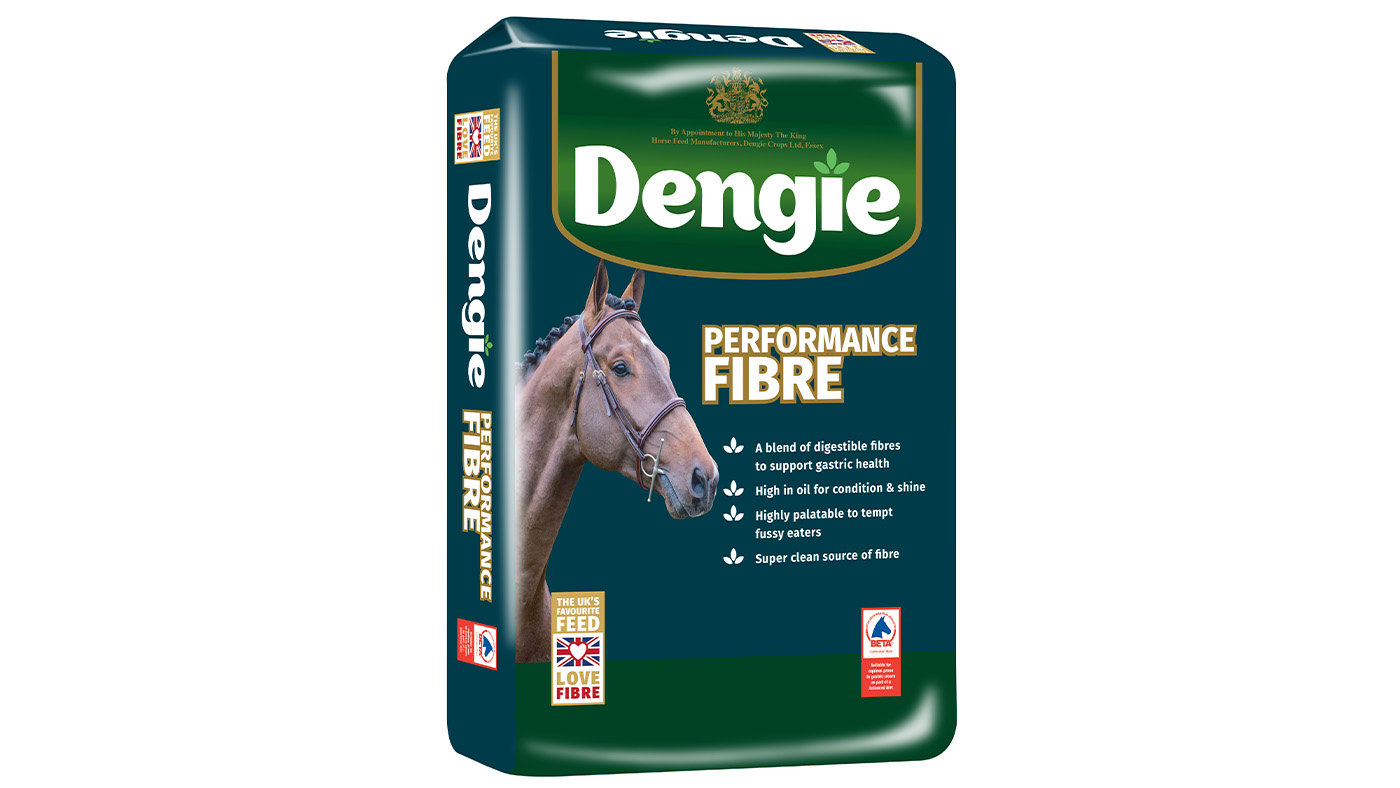
Dengie Performance Fibre
Bag weight: 20kg
RRP: £21.19
Daily feeding rate: 2.5kg (med work/condition)
Cost per day: £2.65
BETA Approved: Yes
This combination of precision-dried alfalfa and grass has a high oil coating, which promotes coat shine, and a light addition of molasses and spearmint oil to encourage fussy feeders. It helps to increase chew time and support gastric health, while being naturally low in starch (1.5%) and sugar (12%), which is comparable to grass hay.
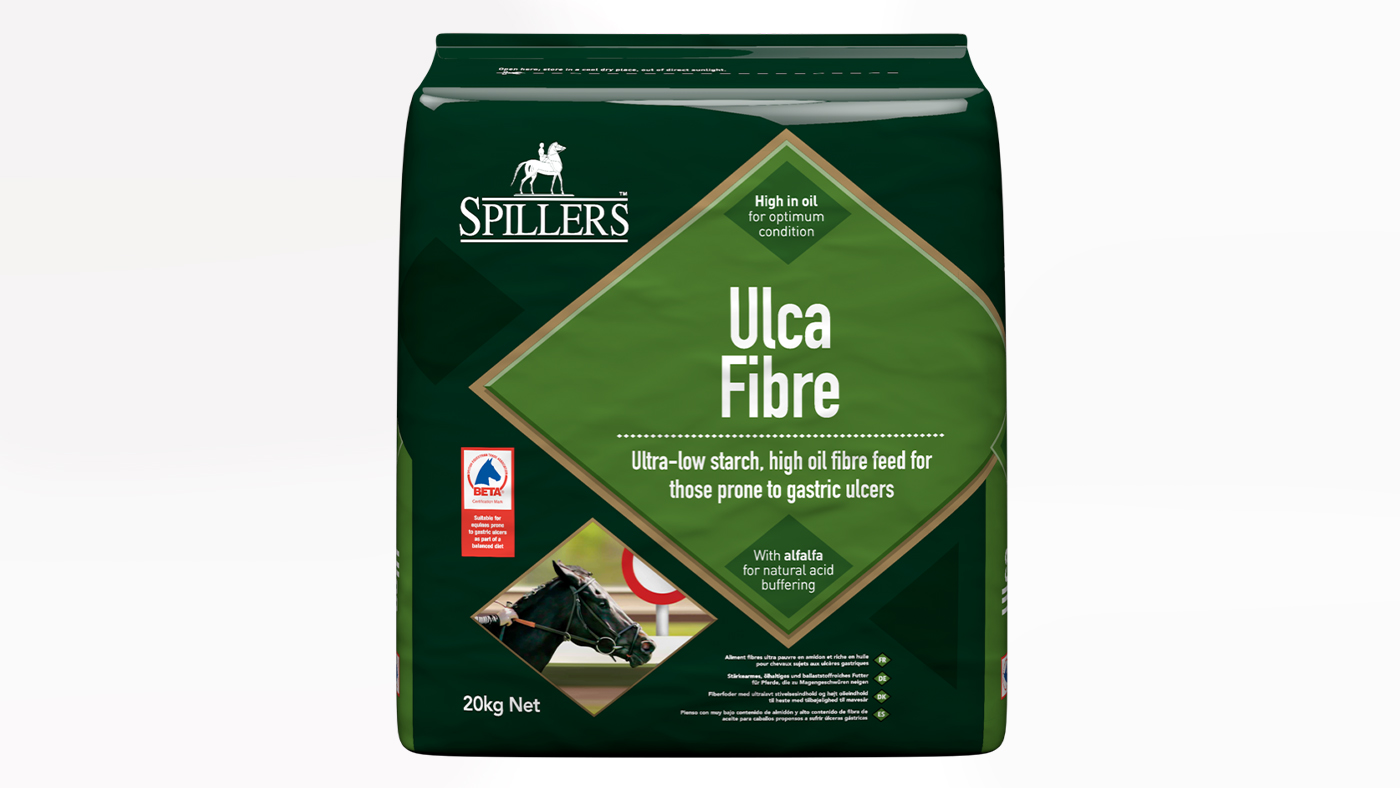
Spillers Ulca Fibre
Bag weight: 20kg
RRP: £21.35
Daily feeding rate: 3kg
Cost per day: £3.20
BETA Approved: Yes
This low-starch, high-oil fibre feed that is designed to support horses prone to gastric ulcers following veterinary treatment. The short-chopped alfalfa extends eating time and provides a natural buffer to stomach acid, while the high oil content provides energy for condition and performance. It contains a full range of vitamins and minerals, including vitamin E for immune support and muscle health, plus high-quality protein to support muscle development.
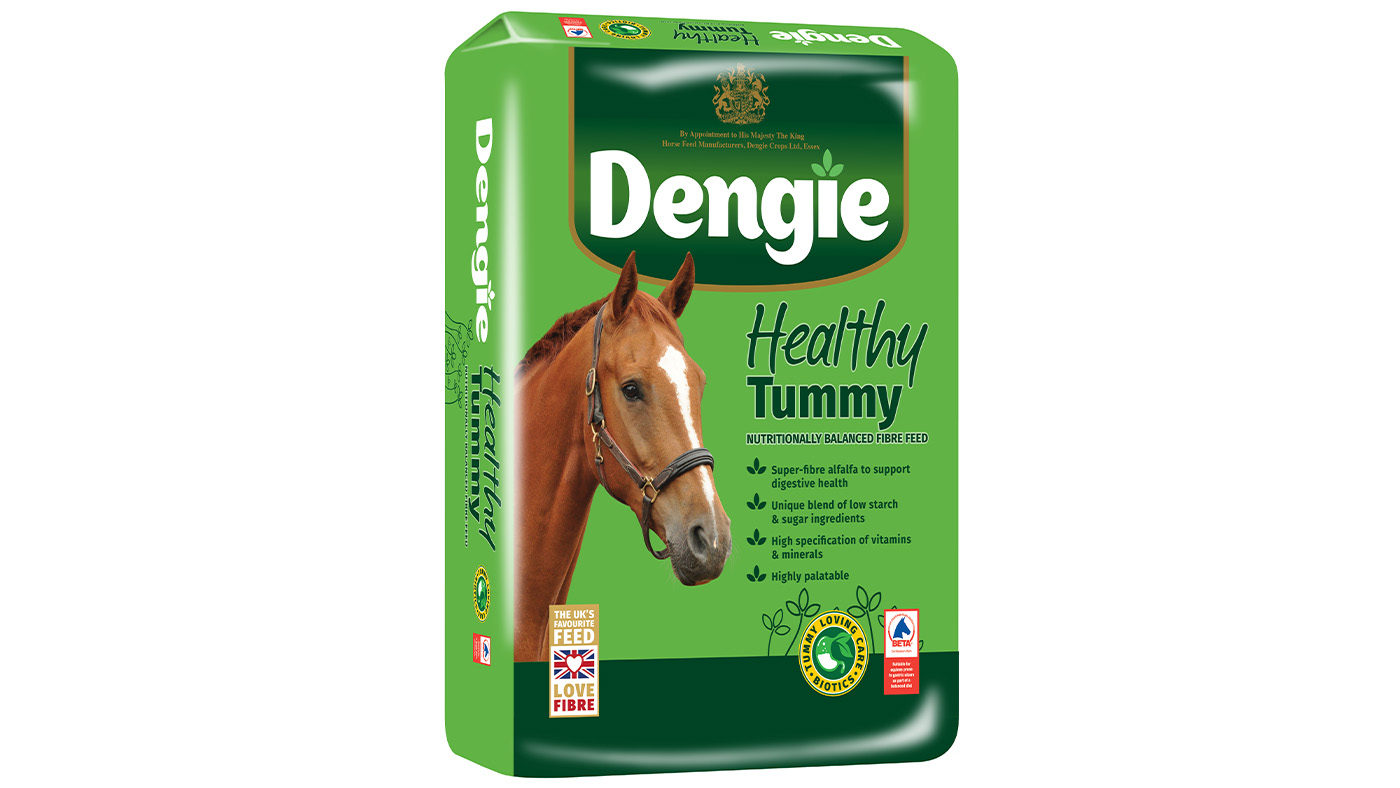
Dengie Healthy Tummy
Bag weight: 20kg
RRP: £21.85
Daily feeding rate: 2.5kg (if used as sole feed alongside forage)
Cost per day: £2.65
BETA Approved: Yes
This nutritionally-balanced, high fibre feed is made from pure, chopped and pelleted alfalfa. The energy provided is comparable to a medium-energy mix/cube, but with significantly lower levels of starch (2%) and naturally occurring sugar (4.5%). It contains a prebiotic formula, a high-specification of vitamins and minerals, and a blend of herbs to tempt fussy eaters. It is free from molasses, straw and preservatives.
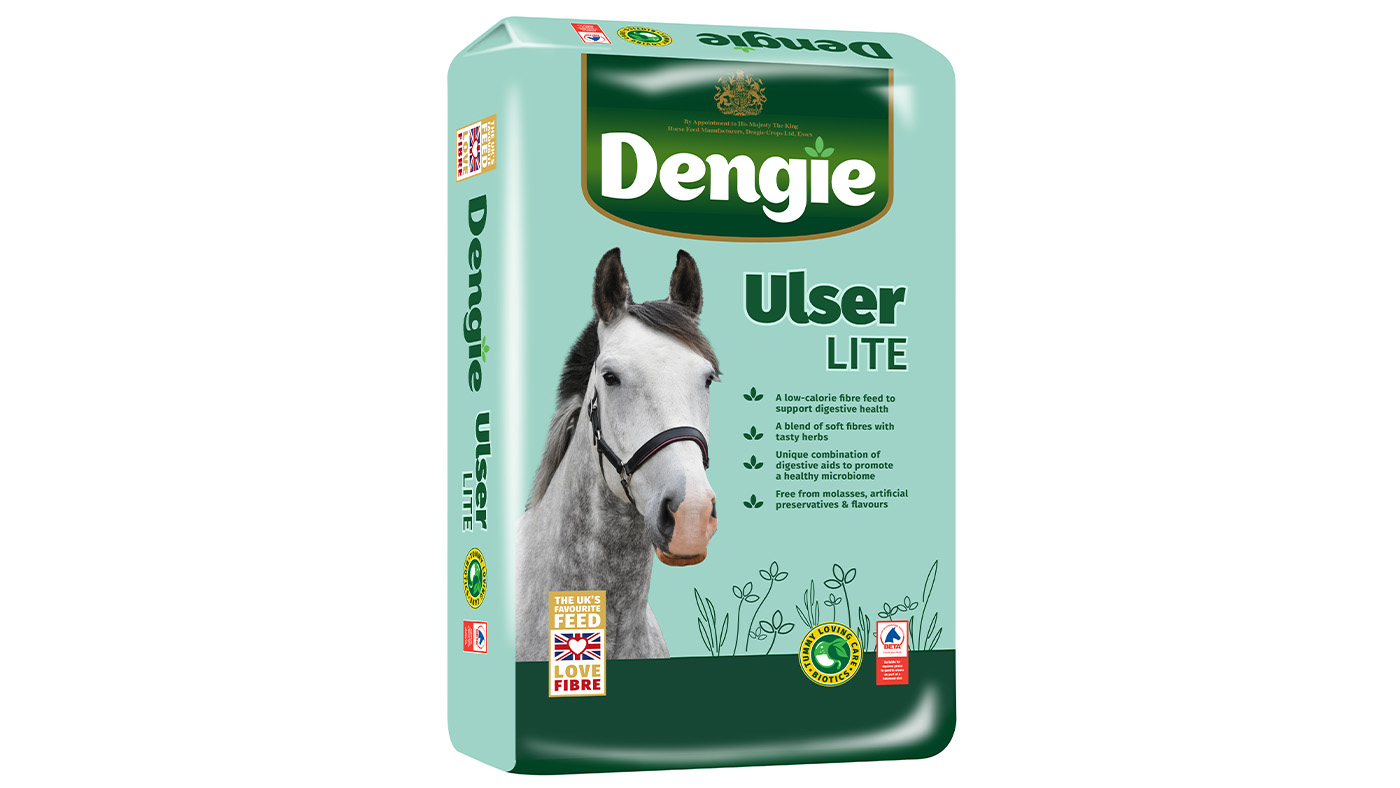
Dengie Ulser Lite
Bag weight: 20kg
RRP: £18.29
Daily feeding rate: Up to 2.5kg
Cost per day: Up to £2.29
BETA Approved: Yes
This high-fibre, low-calorie feed is made of a blend of straw, grass, alfalfa pellets and herbs, which increases chew time without adding too many additional calories. It is naturally low in starch (2%) and naturally occurring sugar (6%). It contains prebiotics and calcium for optimal digestive health, and has a light oil coating that provides slow-release energy and promotes coat shine. It is free from molasses, artificial flavours and preservatives.
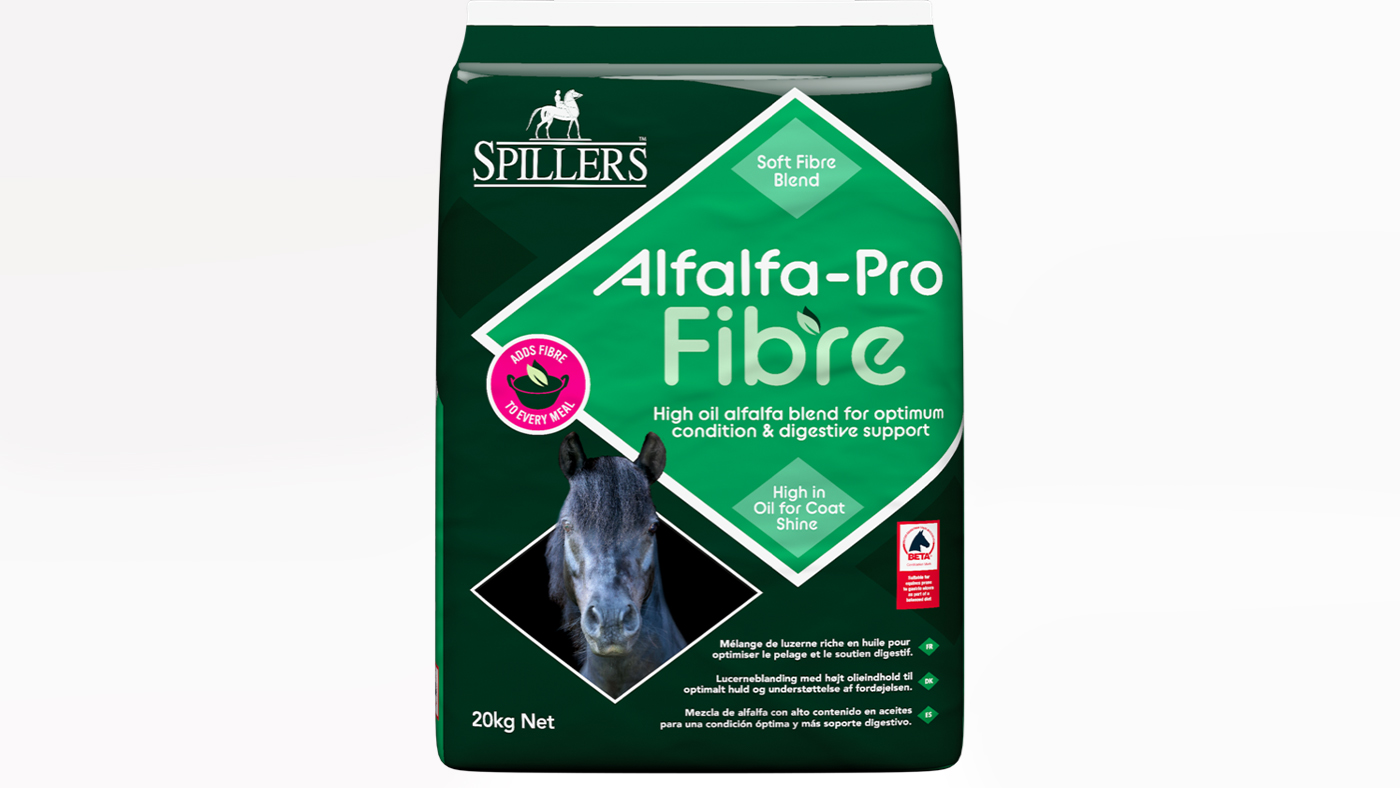
Spillers Alfalfa-Pro Fibre
Bag weight: 20kg
RRP: £18.65
Daily feeding rate: Up to 500g
Cost per day: Up to £0.47
BETA Approved: Yes
This soft, conditioning alfalfa blend with oil contains added vitamin E to balance the high oil content.

Dodson & Horrell Fibre Up
Bag weight: 18kg
RRP: £24.17
Daily feeding rate: 2.5kg
Cost per day: £3.35
BETA Approved: No
This all-in-one, fully balanced conditioning fibre feed is suitable for horses who need to build condition at any level of work, but is particularly ideal for poor-doers, those prone to ulcers, horses coming into (or back into) work, and those who need to gain condition while keeping a cool head.
Blends, cubes, mixes and mashes suitable for horses with or prone to ulcers

Baileys No.21 Ease & Excel
Bag weight: 15kg
RRP: £18
Daily feeding rate: 4kg (moderate work)
Cost per day: £4.80
BETA Approved: Yes
Ideal for promoting weight gain, maintaining condition and supporting performance in horses requiring a low starch, high specification diet. Ease & Excel is a low-starch feed that includes no micronised cereal flakes, which means the slow-release calories are provided by fibre and oil. It has a full balance of vitamins, minerals and antioxidants, and contains a bespoke blend of antacids, pre- and probiotics.

Saracen Re-Leve Cubes
Bag weight: 20kg
RRP: £18.99
Daily feeding rate: 2kg
Cost per day: £1.90
BETA Approved: Yes
The blackcurrant-flavoured Re-Leve cubes are a highly versatile, low-starch (9%), low-sugar (4.5%) cube is formulated specifically to help support a healthy digestive tract and maintain normal muscle function. Highly digestible super-fibres and oil are the main energy sources, which is ideal for horses prone to ulcers. The cubes are fully fortified with a full spectrum of vitamins, chelated minerals, and antioxidants, including natural vitamin E, along with a live yeast to support optimum digestive health.
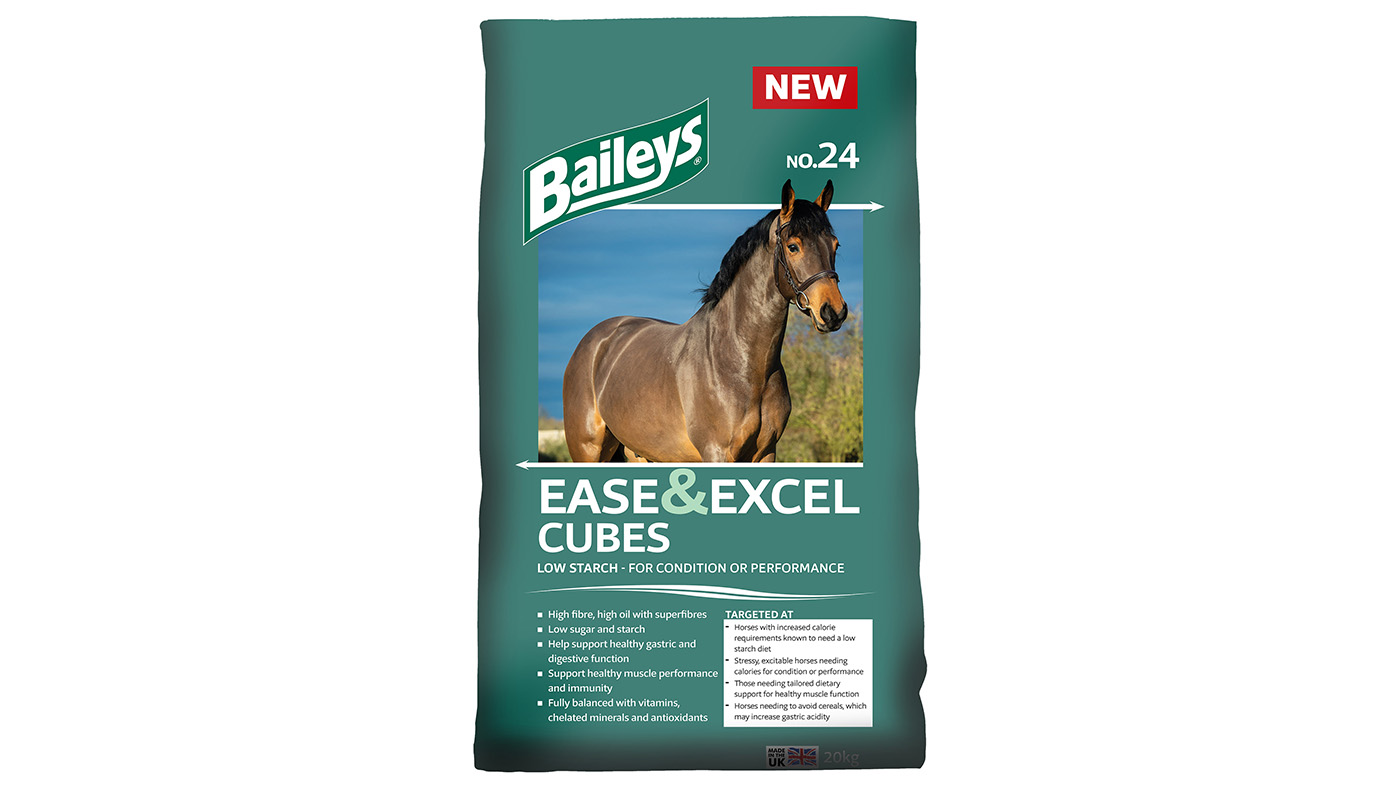
Baileys No.24 Ease & Excel Cubes
Bag weight: 20kg
RRP: £20.50
Daily feeding rate: 5kg (moderate work)
Cost per day: £5.13
BETA Approved: No
These cubes supply elevated levels of slow-release energy – for condition or performance – from a low-starch (8%), high-fibre (18%) formula. They are ideal for sensitive horses that require a low-starch diet, and are designed to support healthy gastric and digestive environments and muscle function. Ease & Excel is fully balanced with performance levels of vitamins and chelated minerals, plus grapeseed extract, an innovative concentrated source of natural antioxidants to support immunity and recovery. Compared to Baileys No.21, the cubes are slightly lower in oil and calories.
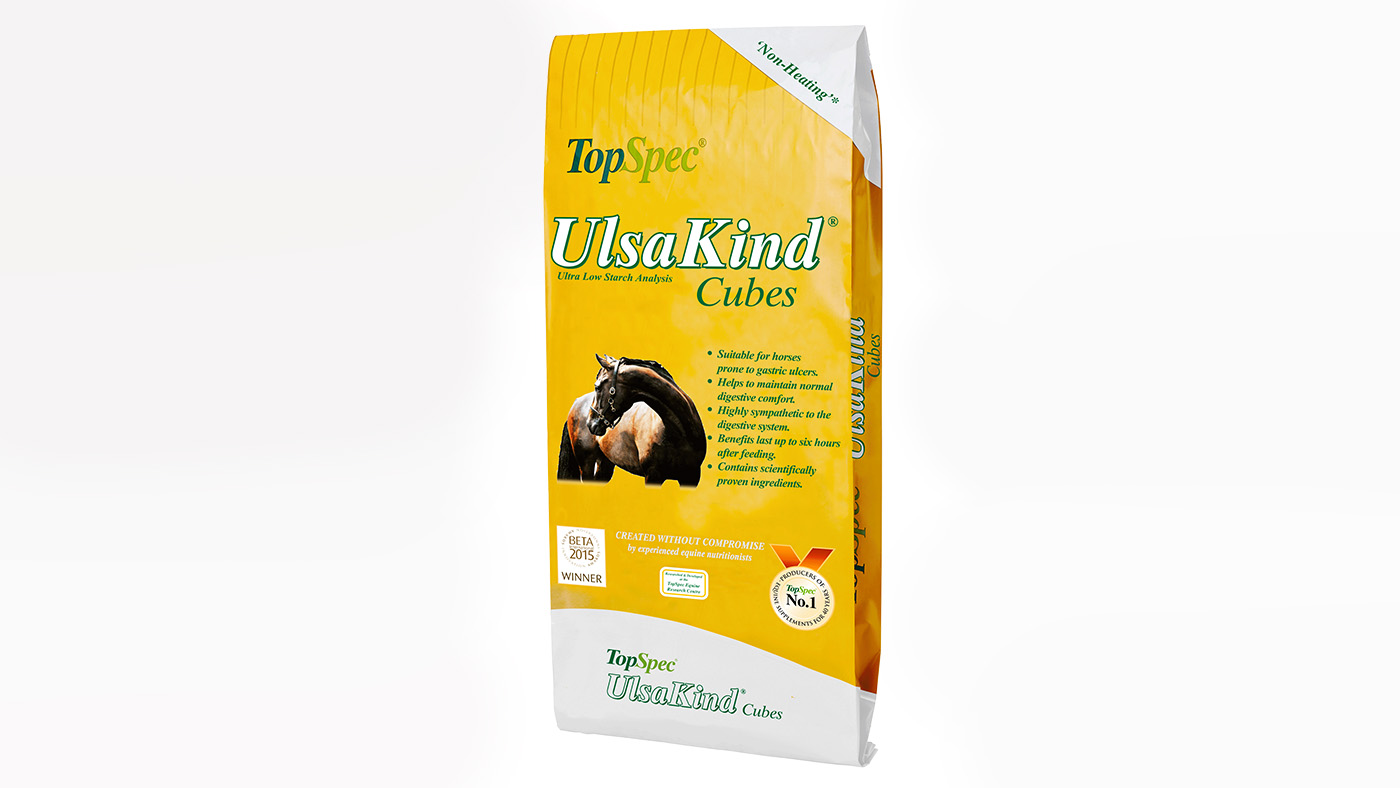
TopSpec UlsaKind Cubes
Bag weight: 20kg
RRP: £20.05
Daily feeding rate: Up to 1.6kg
Cost per day: Up to £1.60
BETA Approved: No
TopSpec UlsaKind cubes are low in starch (7%) and formulated to provide calories for condition while being highly sympathetic to the digestive system. They contain very high levels of β-glucans, which form a gel and coat the stomach lining with a soothing film. This helps to prevent stomach acid splashing the less protected portion of the stomach.
The gel also slows the rate of passage of feed through the stomach and intestines, reducing the time period that the stomach is empty. The absorption of sugar is also slowed and the glycaemic index of the feed is lowered, reducing the effect on blood sugar levels. UlsaKind is designed to be added to feed balancer or supplement and therefore, contain no added vitamins or trace-elements.
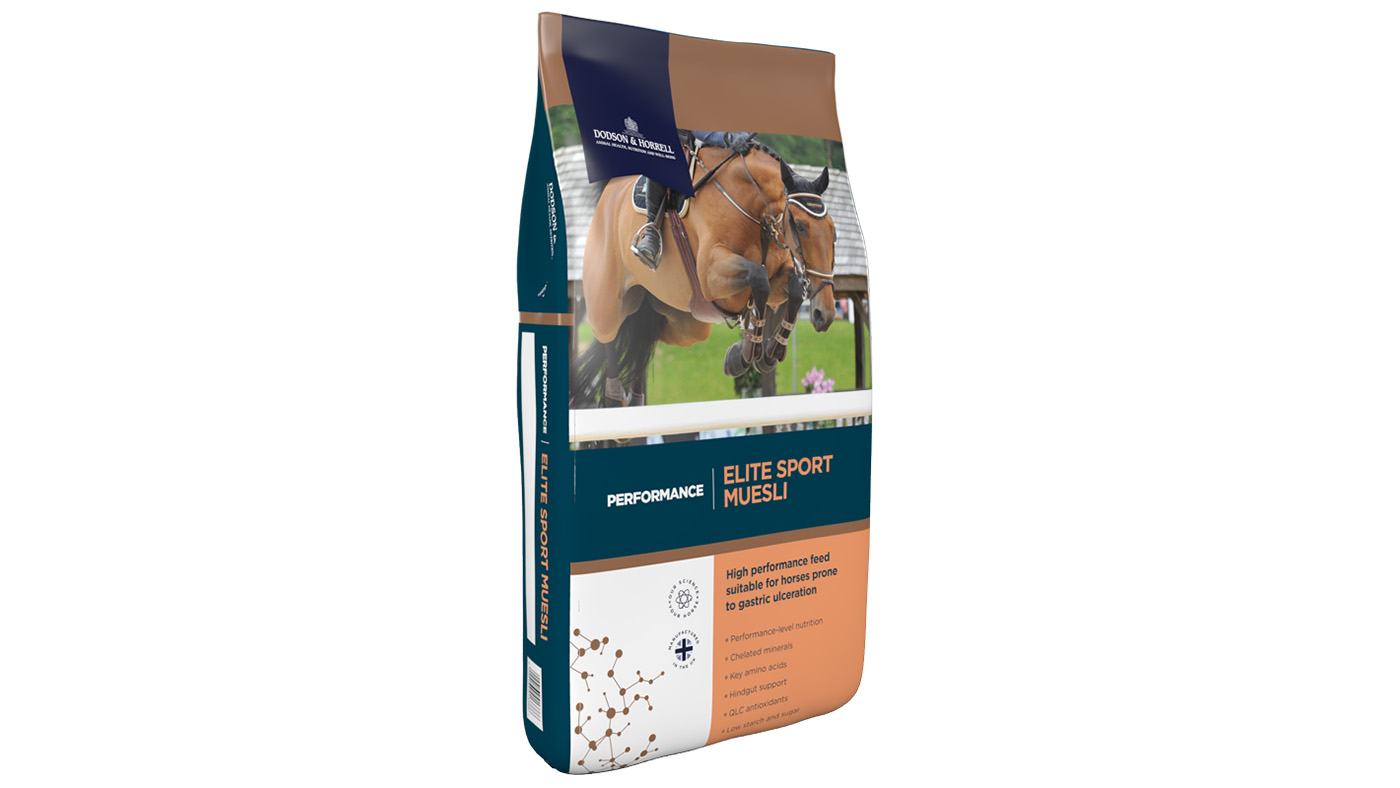
Dodson & Horrell Elite Sport Museli
Bag weight: 20kg
RRP: £21.63
Daily feeding rate: 2–5kg
Cost per day: £2.16–5.40
BETA Approved: No
This is the lowest starch (12.5%) muesli in Dodson & Horrell’s range. It provides performance level nutrition suitable for those that may be prone to gastric ulceration, as well as prebiotics and probiotics to support a healthy hindgut and nutrient uptake.
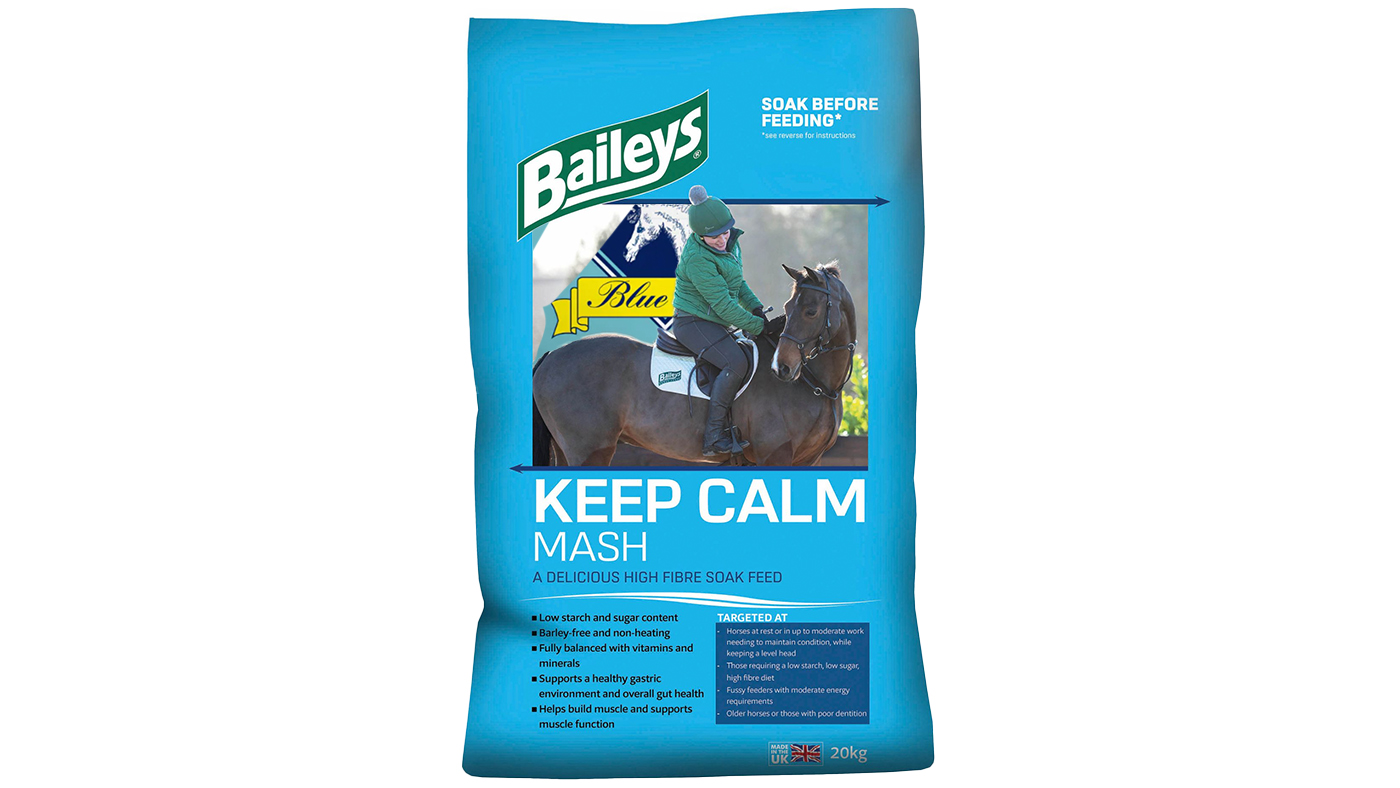
Baileys Keep Calm Mash
Bag weight: 20kg
RRP: £20
Daily feeding rate: 2.5kg
Cost per day: £2.50
BETA Approved: No
This high fibre, non-heating, fully balanced mash is formulated to maintain condition, while helping encourage a calm temperament. It contains highly digestible super-fibres and is fortified with quality protein, vitamins and minerals, and a prebiotic, while also being low in starch (7%) and sugar (4.5%). It soaks into a mash in 10 minutes and is barley-free, with linseed for a shiny coat. It supplies slow-release energy and is suited to horses in up to medium work.

Saracen Re-Leve Mix
Bag weight: 20kg
RRP: £22.49
Daily feeding rate: 2kg
Cost per day: £2.25
BETA Approved: Yes
This cereal-free, low-starch (8%), blackcurrant-flavoured mix has been specifically formulated to replace all cereal-based hard feed for working horses that react adversely to high-starch feeds or are prone to ulcers. It provides controlled energy from highly digestible super-fibres and oils.
It fully fortified with vitamins and minerals along with elevated levels of antioxidants, such a vitamin E, to support normal muscle function and recovery. It also contains the recommended level of yeast to support the maintenance of the hindgut and stabilise the stomach pH level.
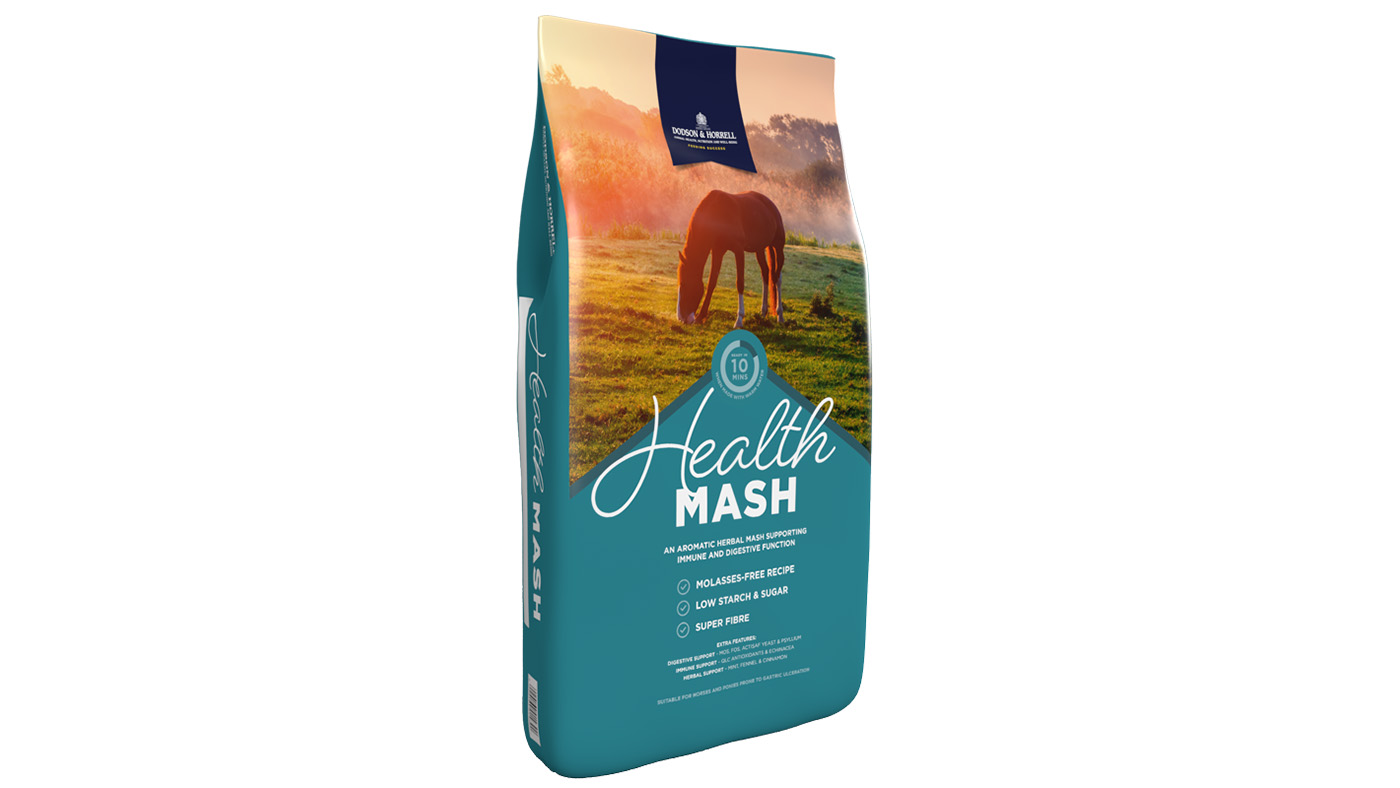
Dodson & Horrell Health Mash
Bag weight: 15kg
RRP: £21.05
Daily feeding rate: 500g–1kg
Cost per day: £0.70–1.40
BETA Approved: No
This herbal mash, which soaks in less than 10 minutes, is formulated to support immune and digestive function. It’s molasses free, low in starch and sugar, and non-heating, which makes it really versatile. It contains prebiotics, probiotics, yeast and psyllium for digestive support, antioxidants and echinacea for immune support, and mint, fennel and cinnamon.
What is the BETA EGUS Approval Mark?
In 2016, the British Equestrian Trade Association launched a new feed approval mark that offers feed companies the opportunity to highlight products suitable for horses and ponies prone to, or at risk from, EGUS. It aims to make it easier for horse owners to identify feeds most suitable for horses prone to ulcers.
There are many legal restrictions around how feed and supplement products can be described in relation to different ailments – in short, they can’t be linked in a way that suggests they are nutritionally beneficial. But the launch of this scheme has allowed feed manufacturers with approved products to highlight feeds (not supplements) best suited for horses and ponies prone to EGUS without breaking the rules and regulations involved in marketing equine feeds.
Companies can submit products for approval, which includes the examination of ingredients, labelling, marketing claims and independent laboratory analysis. They must have, among other things, lower levels of sugar and starch than comparable products on the market. If accepted, the companies pay an annual fee to cover the cost of running the scheme and can display the logo on their packaging and marketing materials.
Products can be developed that are suitable feeds for horses with gastric ulcers, but the manufacturers may choose not to enter the scheme for various reasons.
What to feed a horse with ulcers
In addition to consuming at least 1.5% of their bodyweight a day in forage (hay, haylage or a suitable forage replacer), a feed balancer that provides a concentrated source of vitamins, minerals and quality protein is a valuable addition to the diet. If your horse requires more energy, this is best to be delivered by fats and oils rather than starch and sugars. It’s important to look for high-fibre, low-starch and low-sugar options when selecting feeds for horses with ulcers.
Adding short chopped fibre, ideally containing alfalfa, to every meal is beneficial as the high protein and calcium content in alfalfa is thought to help buffer stomach acid.
It is important that horses chew regularly, which produces saliva that helps to neutralise this acid – without frequent intakes of forage, the acidity increases and the horse is at a greater risk of developing ulcers. This increase in acidity is what gastric supplements aim to buffer. Lengthy periods without access to forage can leave the stomach walls vulnerable to acid attack, so calorie control should not come at the expense of fibre or other essential nutrients.
Which horses are prone to gastric ulcers?
Equine Gastric Ulcer Syndrome isn’t just a problem for performance horses – it can affect any breed or any age – and there are increasing numbers of leisure horses and ponies being identified as, or suspected of, suffering from the condition. This is especially true for horses or ponies whose forage intake is restricted, perhaps due to poor grazing or in efforts to reduce calorie intake.
You might also be interested in:

Balance the stomach pH – a guide to gastric supplements on the market
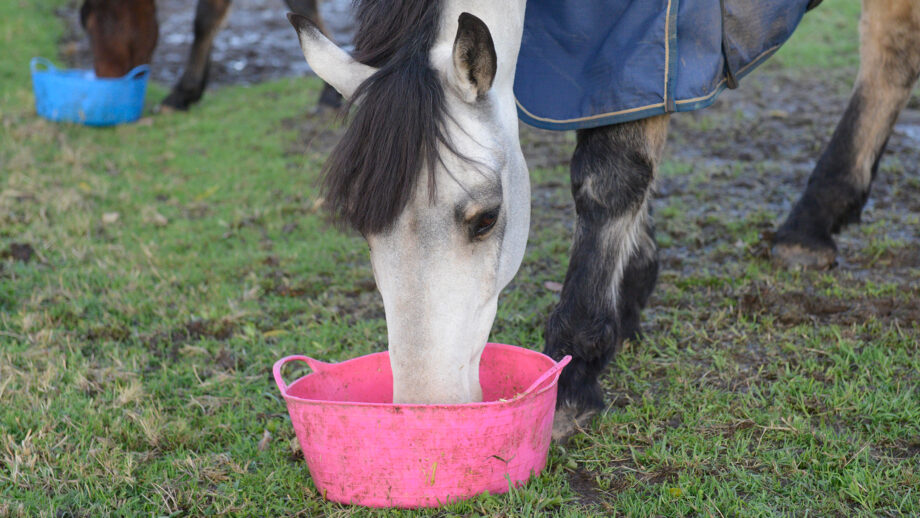
15 feeds to help your horse gain weight and condition

Owners failing to act to help horses with ulcers
Although awareness is high, fewer people than expected are using recommended methods of managing the condition

Gastric ulcers in horses: the important facts every owner needs to know

Expert advice for feeding a horse to avoid gastric ulcers

Subscribe to Horse & Hound magazine today – and enjoy unlimited website access all year round
Horse & Hound magazine, out every Thursday, is packed with all the latest news and reports, as well as interviews, specials, nostalgia, vet and training advice. Find how you can enjoy the magazine delivered to your door every week, plus options to upgrade your subscription to access our online service that brings you breaking news and reports as well as other benefits.


